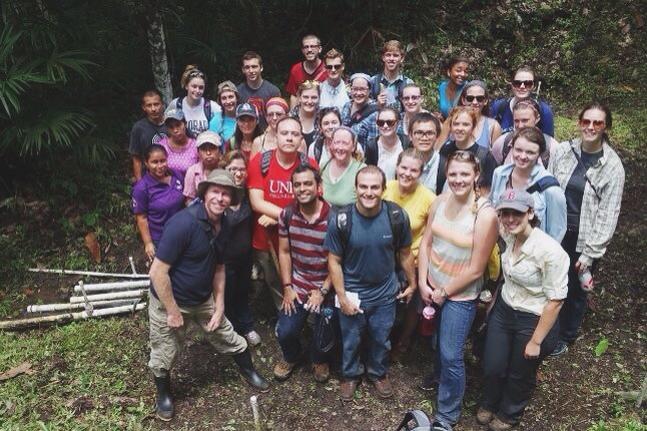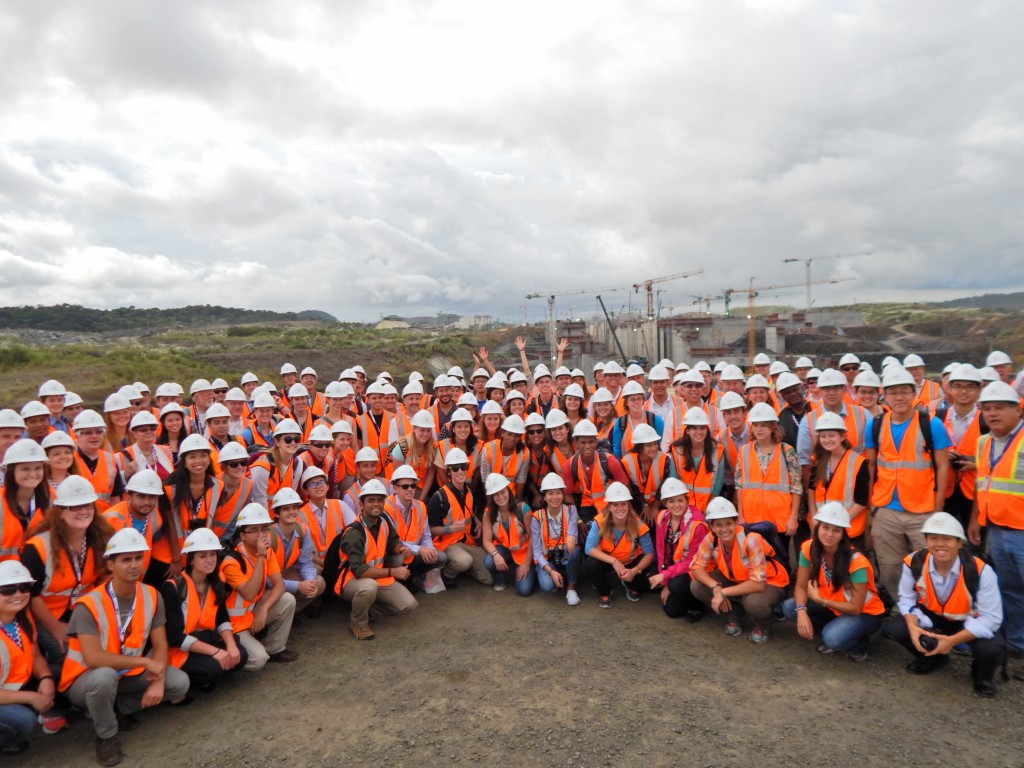Life and Engineering Lessons at EWB-USA’s ‘Design Global, Engineer Local’ Program in Panama

Seven days in Panama City. A new country’s stamp on my passport. A once-in-a-lifetime opportunity. One that I did not miss. I won a national scholarship from Black and Veatch’s Building a World of Difference Foundation to attend EWB-USA’s Global Leadership Program coupled with ASCE’s Global Engineering Conference in Panama during October 5-11, 2014. And I am glad I made the journey where budding engineers/scientists discussed and shared experiences of executing community-driven projects in developing countries to alleviate problems like clean water availability, sanitation, electricity, transportation, among others.
Spearheaded by Dr.Bernard Amadei, founder of EWB-USA and Professor at CU-Boulder, the course explored methodologies of conducting community assessments, designing solutions, and continue monitoring post-implementation as the development team slowly extracts itself leaving behind a hopefully sustainable community-driven endeavor that continues to thrive. It had about a 100 participants – students, professionals (development and otherwise), and professors – both teaching and learning from their collective experiences in projects, socio-economic problems encountered, politics that was dealt with (or not), and roles of community members (of both genders) in making a project tick.
In retrospect, I categorize the course into three distinct boxes:
a) a project’s lifecycle and its management (a combination of technological solutions and social science insights) mostly taught by Dr. Amadei; Things like risk analysis and capacity building to his stories about escaping from a politically unstable region through bribes and the help of the CIA – unforgettable stories and lessons wrapped in a single experience.
b) individual pathway explorations (i.e. Water Treatment, Transportation, Electricity, Water Distribution, and Sanitation) led by leaders – I was in the Water Sanitation and Hygiene (WASH) pathway led by Dr Kurt Patterson (JMU) and Jodi Gentry (Army Corps. of Engineers) which was a brilliant assessment of global conditions and an attempt at defining each WASH project’s role in it;
c) sessions in the ASCE Global Conference and interactions with speakers during both the course and the conference.
Course: Learning from people like Avery Bang – who runs ‘Bridges to Prosperity’ which has a very focused mission of building bridges to encourage transportation, economic growth, and education opportunities, and Andrew Reynolds – from the State Department who talked about issues concerning urbanization and individual empowerment along with some USAID examples of work being done.
Conference: The scale here was huge – gigaprojects primarily and there were several sessions covering technological, political, social, economic, and expansion aspects of the Panama Canal from current and former Canal Administrators, a sampling of such immense projects worldwide by Patricia Galloway (past-ASCE president), and a session on resilience post-tsunamis by Gary Chock which I really loved.
But Dr. Jim Mihelcic’s session really took the cake since it talked about a whole host of development projects students at USF (under their Masters International program) and Michigan Technological University have worked on, the challenges they have faced, and the sheer number of lives they together have changed. Needless to say, I did get his book ‘Field Guide to Environmental Engineering for Development Workers’ since it is needed not just for our Guatemala project here at Virginia Tech but for my future endeavors too. I found it to be full of technological solutions and a neat cookbook one can start with.

A fourth aspect of the whole experience was the field visit three hours inland in the village of Lemon de Tulu where a bunch of us hiked the tropical forests to meet a community that mostly makes sombreros (the fancy Mexican/Panamanian hat) or does farming for a living. Each house has piped water; springs from a mountain were tapped in to deliver water to a big tank via PVC pipes and consequent piping provides water to each house. There is a water committee that oversees water distribution and usage helping manage this precious resource. We asked a bunch of questions about water issues, gender roles, social structures, etc.; the Spanish speakers amongst us deftly juggling the Q&A. The community cooked lunch for all of us which was heartening and I can vouch that it was one of the best meals I have ever had. Even more surprising was the fact that they grow everything they eat (except salt, of course, which they buy).
I made some amazing connections and learned 10x of what I was expecting. Some of the conversations from those evenings continue to ring in my ears making me think and smile.
More information on the course is available here. For the ASCE conference, click here.
Oh! And we also visited the Panama Canal (wasn’t that a given?). Some (group) pictures to delight the reader follow.



